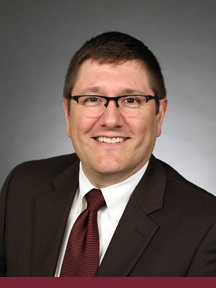
Written by Dr. John Woznicki
It was the philosopher George Santayana who most famously spoke to the ultimate benefit of knowing our history: “Those who cannot remember the past are condemned to repeat it.”
You know this quote, or some version of it, and I am willing to wager that you also have an inherent sense that history, and our knowledge of it, is indeed important to us in some way. Historians are those who, ultimately, chronicle and, in many cases, preserve history. And they do so not necessarily for the sake of earning a paycheck, but for our benefit.
That’s why, while reading The New York Times’ article “In Church Attics, Clues to the Private Life of Early America,” it struck me how important it is to still train people as historians. As dean, I oversee the University’s bachelor's degree in history program, and I was delighted that the article expertly addressed the kind of work that our present-day historians do, work that has components both conventional and progressive. It is work supported by the kind of skills that would benefit just about anyone in the workforce, from the criminal investigator to the human resources manager and just about everyone in between.
History work entails looking for information in customary style, painstakingly seeking clues from both primary and secondary sources for leads that will get them closer to the holy grail, the ultimate primary source—in this case, to the actual church records still held at Colonial-era churches. Ask any detective if this work is akin to a historian’s (or watch any of the episodes in the CSI television franchise). You may also ask any human resource manager if she or he has ever had to research the background of a potential candidate or look back through institutional records for seldom evoked but now relevant policies or interview employees to gain a sense of an undocumented institutional history that might be relevant for their development of a new training program.
As they seek to preserve those primary sources, those original documents that are so valuable to us, they will increasingly require skills in digital media for the preservation or retrieval of information.
We will depend more and more on folks who are cross-trained with solid skills in communication, research, and in digital information storage, retrieval and analysis as life in the 21st century—life in the information age—becomes increasingly more complex. This will benefit those who are criminal investigators, anthropologists, insurance claim adjusters, human resource managers, etc.
In the way they tracked down those church records, I believe the historians mentioned in the article would have done very well in any of those professions.
But they chose history. And without the benefit of conducting an interview with them, I might suppose that perhaps part of their decision to choose history as a profession may have been based on our shared sense of the importance of history and our need to know it, to preserve it.
You see, those church records, as the article suggests, hold all kinds of interesting and important (yes, important!) personal information that can offer us many insights into colonial culture and perhaps, our culture at large. Who were we as Americans? Who are we now as Americans? Why is it important to know that Sarah Wood apologized for denouncing infant baptisms? Or that Sarah Blanchard was sorry she skipped a worship service?
How important will the information in those records be 300 years from now? How important will it be for us to digitize and preserve our history so it is not lost to the ravages of time?
What we can be sure of is that the historian’s search, even when completed, is never over. It opens up new questions, and it prompts a new search. Historians give us the opportunity for perpetual examination, so that we may lead interesting, fulfilling lives worth living, and so we may preserve the opportunity for improvement as humans and learn from our mistakes, not doomed to repeat ourselves.
Without our historians and the recording of history, we may lose those opportunities. Preserving the past, and understanding it, should be a shared priority. In that, we can then shape our future.

Written by Dr. John Woznicki